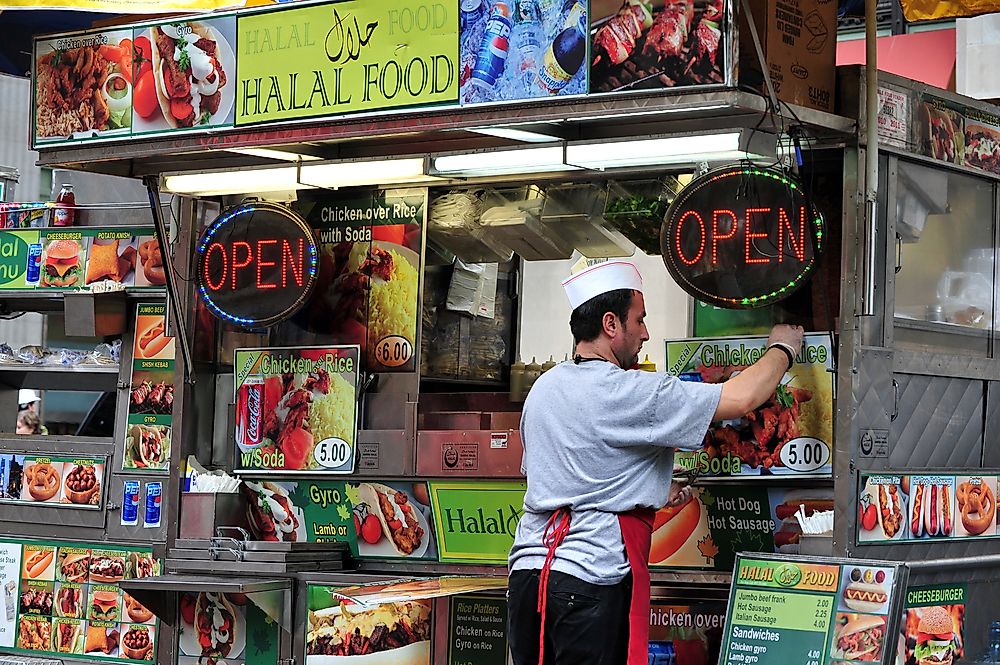What is Halal Food?

Halal is an Arabic word that translates to “permissible.” The term is not restricted to only food to anything lawful or allowed. In the Quran, the opposite of halal is “haram” meaning forbidden or unlawful. In Islam, the term “halal” is mainly associated with Islamic dietary laws, particularly meat processing and preparation. Halal food is, therefore, any food that is considered by Islamic law as permissible for consumption. During the month of Ramadan, Muslims around the world will fast during the day but many will break their fast in the evening and only eat halal foods.
The Basis of Determining Halal Food
To determine which foods can be considered halal, Muslims can draw their basis on three major religious sources: passages in the Quran, customs and sayings of Prophet Muhammad, and views of the religious scholars and leaders. The Quran forbids the eating of any animal that has been slaughtered in the name of other gods other than Allah. The animal should also be slaughtered in a prescribed manner and by a faithful Muslim who can recite “shahada.”
The Quran does not give a list of halal food but instead focus on the handling of food. Foods containing blood, alcoholic beverages, and intoxicants are considered haram. However, a Muslim who is almost dying from starvation is allowed to eat non-halal food. Because of the rapidly growing number of Muslims around the world, several companies are now offering halal processed foods. Halal-ready meat is now a popular food in most stores across Britain and America.
Method of Slaughtering Animals
For meat to be considered as halal, the animals must be slaughtered in a certain manner referred to as “Dhabihah.” The method applies to all meat sources except fish and other sea-sources. Before the animal is slaughtered, it has to be inspected to ensure that it is alive and healthy. Preferably, the animal is to be slaughtered by a Muslim upon reciting a dedication known as the shahada. Animals that have been slaughtered by non-Muslims such as Christians can only be considered as halal if it is indicated before slaughter that it is meant for consumption, if the slaughtering process is by jugular slice, if God’s name is invoked before the slaughter, or if the meat is not pork or any other prohibited meat.
Is Halal Different from Kosher?
Kosher foods are prepared in compliance with the Jewish dietary laws known as Kashrut. There are some striking similarities in the methods of preparing the two foods. The method of slaughter is the same in that a sharp knife is required. However, while Kashrut strictly forbids the use of stunning, Halal does not have a problem with the method. Also, Kashrut does not require one to say the name of God before the slaughter after an initial blessing. Both halal and kashrut forbid the eating of certain parts of carcasses (Halal) and particular fats (Kashrut).











